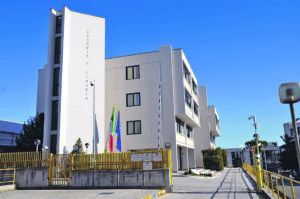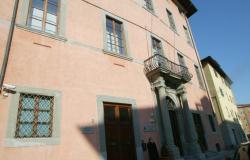General, 250 years of life is quite an achievement. What does a financier feel at this particular moment and on this occasion?
«Definitely a lot of emotion and a lot of pride. Being and feeling, every day, a protagonist, together with the over 60,000 financiers of every order and rank who constitute its most important resource, in the history of this noble and ancient Institution, which carries out its mission at the service of the country and the community, is a reason for profound satisfaction and an incentive to continue in our daily actions with ever greater commitment and determination in the wake of the traditions and values that have always characterized our work.
Grateful to our families and loved ones for the support and patience with which they accompany us in carrying out the service, we are also comforted in this by the memory of the sacrifice of the many colleagues who gave their lives to maintain faith in the oath taken and the constant closeness of all those who have served the State wearing, with discipline and honor, the Fiamme Gialle before us.
On a personal level, I find it particularly gratifying to celebrate this significant anniversary in Molise, a land rich in history and traditions which has given the Guardia di Finanza heroic sons such as Fin. Antonio Zara, native of San Felice del Molise, awarded the Gold Medal for Military Valor, tragically passed away at the age of twenty following a terrorist attack at Fiumicino Airport on 17 December 1973, Deputy Brigadier Antonello Amore, a native of Larino, “victim of duty”, tragically disappeared on 31 May 1991 together with three other comrades on the streets of Rizziconi (RC) during a chase, the Guardia Iaconelli Giuseppe, a native of Sesto Campano, “fell in service”, tragically disappeared on 25 July 1915, during a fight in the Karst.
The barracks headquarters of the Molise Regional Command in Campobasso, the barracks headquarters of the Tenenza di Larino and the barracks headquarters of the Tenenza di Venafro are now named after these three heroes respectively.
And at this juncture I cannot fail to also remember the 5 Bronze Medals and the 4 Crosses of Military Valor attributed to as many Molise men who fell, wearing the uniform of the Corps, during the two world conflicts”.
In a constantly evolving socio-economic context, the institutions are entrusted with the task of always ensuring an adequate system of protection of the community and its freedoms.
What is the commitment made by the Guardia di Finanza in this delicate task?
«The Guardia di Finanza, over the course of its 250 years of history, has been able to adapt its mechanism, always responding promptly and consistently to the needs for the protection of the economic and financial system of the country and of the European Union which have gradually arisen with the changes of the reference operational contexts.
We started from 1774, the year in which the Legion of Light Troops was established in the Kingdom of Sardinia, forerunner of the Corps, with tasks of guarding the treasury and borders.
Born as a customs police and evolving over time as a tax police, the Guardia di Finanza is today a modern police force committed to protecting the national and European budget and defending the economic freedoms of citizens to affirm the principles of legality and justice.
The traditional functions of combating tax evasion, tax evasion and smuggling have gradually been accompanied by investigative activities aimed at preventing and repressing fraud in national and European public funding, corruption phenomena and any crime against the public administration, as well as investigations regarding damages to the treasury and public spending.
The Guardia di Finanza also operates on the front line in the fight against many other forms of illegality: from corruption to money laundering; from the penetration of criminal organizations into the productive fabric and financial circuits to the crimes of bankruptcy and insider trading; from the marketing of counterfeit and harmful products made in Italy to illicit trafficking perpetrated by land and sea.
We must not forget that the Fiamme Gialle are always ready to intervene in the most delicate emergency situations and in the rescue in case of natural disasters, thanks also to the tireless work of the “green berets”, of the financiers of the dog service and of the mountain rescue and of the work carried out by the air and naval sector – since 2016, the Guardia di Finanza has been the only maritime police – for the surveillance of maritime borders and the fight against the phenomena of illegal immigration.
To respond to the needs of a hyper-globalized world like ours, in which the concept of border has taken on increasingly immaterial and indefinite connotations, the Corps is, finally, present on the international scene, not only through participation in some cooperation missions , but also with a widespread foreign network made up of twenty-five experts and liaison officers who operate at Italian diplomatic representations in strategic areas and at international organizations or foreign collateral bodies of approximately eighty countries around the world.
Even in Molise, the Guardia di Finanza today ensures an adequate mechanism for the protection of legality by presenting an organizational model structured around a Command  Regional, two Provincial Commands (Campobasso and Isernia), an Air-Naval Operations Department (ROAN.) on Termoli, two Economic-Financial Police Units (Campobasso and Isernia) and various territorial departments (Campobasso and Isernia Groups, Termoli Company, Tenenze of Larino and Venafro) capable of guaranteeing widespread and effective coverage of the territory”.
Regional, two Provincial Commands (Campobasso and Isernia), an Air-Naval Operations Department (ROAN.) on Termoli, two Economic-Financial Police Units (Campobasso and Isernia) and various territorial departments (Campobasso and Isernia Groups, Termoli Company, Tenenze of Larino and Venafro) capable of guaranteeing widespread and effective coverage of the territory”.
What data emerges on the quality of the socio-economic fabric of the Molise region by observing the results obtained by the Corps in recent years?
«In this Region the Guardia di Finanza is operating, in perfect synergy with the other institutions present in the area, to guarantee a solid and effective guarantee of legality in favor of citizens and honest businesses, in order to support a path of stable growth, sustainable and lasting nature of its economy, also through the contrast and removal of all those factors that can slow down or limit its development.
With regard to the results of the operational activities conducted by the Corps, I would like to underline how the daily work carried out by the Molise financiers shows a “substantially healthy” picture of the regional socio-economic system.
This does not mean that evasive phenomena or fraudulent practices, even of a certain extent, have not been identified and that they do not continue to be targeted, but what we observe is that no significant elements have yet emerged that could lead us to think that the Molise one is a highly compromised reality.
Over the years we have achieved various results, both in the fight against tax evasion and avoidance, and in the sector of national and European public funding scams; we have successfully developed investigations into tax damages and public spending as well as money laundering; we have finally faced the problem of undue compensation, achieving important results in this sector too.
But from none of these activities, I underline again, are there any indications of a structural crisis of the system.
It is obvious that it is necessary to maintain high attention, especially in a moment of general economic slowdown such as this, as it is precisely in such situations that the entry into the legal economy of those illicit proceeds of which especially the large criminal organizations have great availability, which, by effectively altering the balance and the rules, expose it more and more to illegal phenomena.
Finally, it should not be forgotten that structured criminal organizations also have the means necessary to seize the great opportunities that the PNRR can offer them in terms of infiltration into the activities aimed at implementing the funded projects.
The Corps responds to these challenges with a widespread action of economic control of the territory combined with the continuous refinement of the skills of its members through specific training courses, as well as through continuous and fruitful collaboration with the other institutions present in the territory for the identification and adoption of synergistic initiatives which, by enhancing the specific skills of each individual, allow the full achievement of the set objectives”.
What wishes would you like to send to the Financiers of Molise for this anniversary?
«“In tradition the future” is the motto that all of us Financiers have chosen, through a specific procedure initiated by our General Command, to represent us in this important circumstance.
Here, strengthened by this common feeling, I want to wish all the Financiers of Molise, and therefore also myself, that the spirit with which we have adopted this motto continues to inspire our work, making us always keep in mind the importance of those values and symbols on which we have built and continue to build our beautiful history to guarantee society a further 250 years of well-being and prosperity.”
Luca Colella
 Print Article
Print Article








